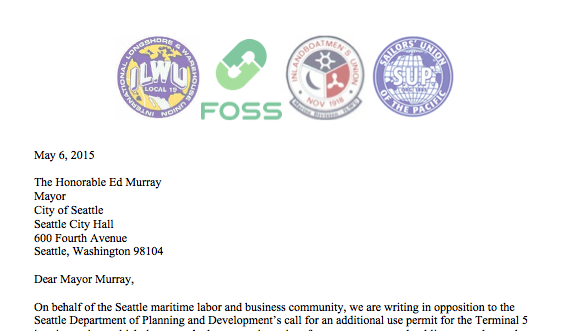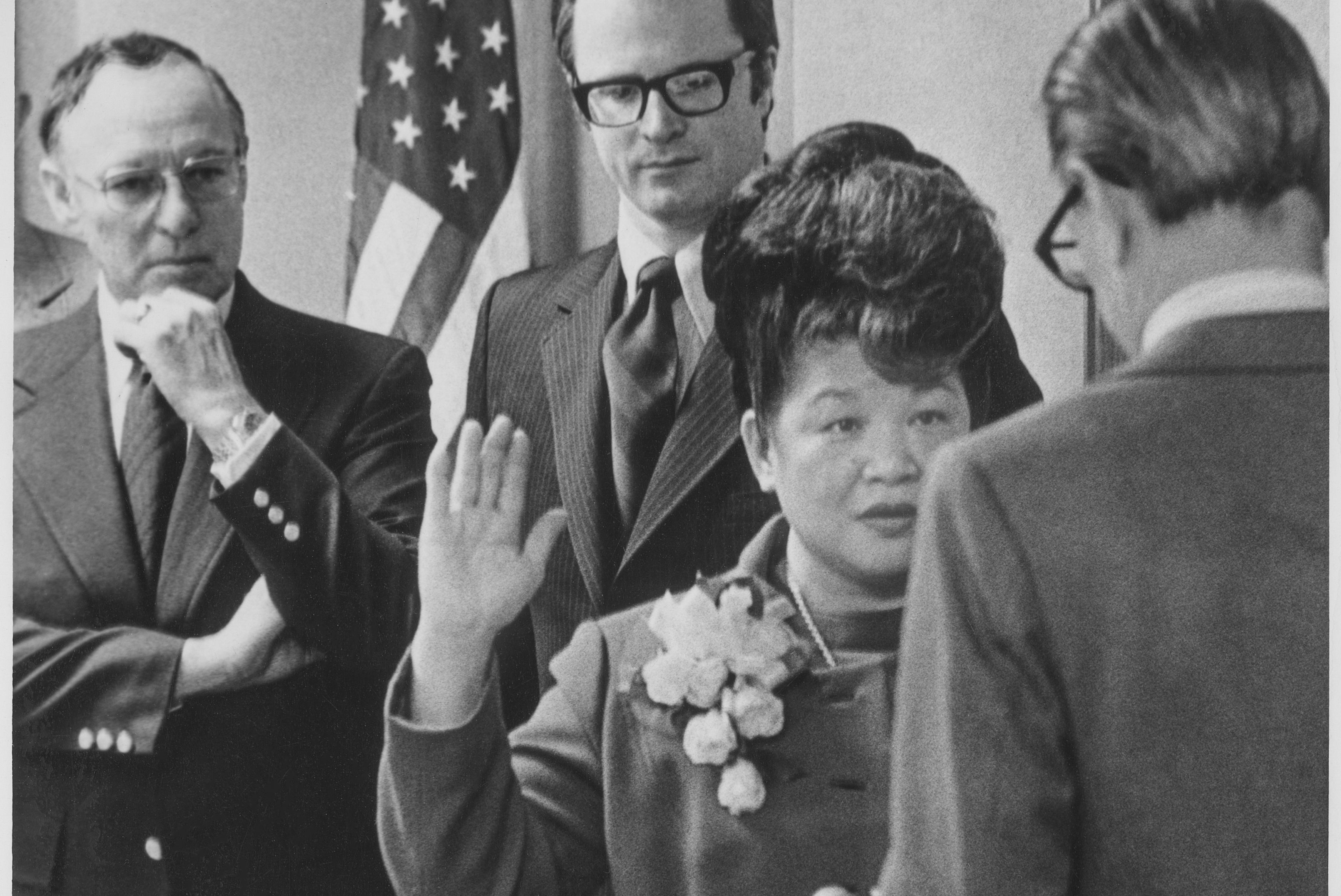Defending Shell Lease, Maritime Industry Sends Angry Letter to Mayor Murray

Caffeinated News
Paul Queary, senior vice president of communications with Strategies360 (a consulting firm representing Foss Maritime), didn't buy it. “The fact is that there are a lot of people who are working right now who would be out of a job,” Queary told PubliCola, “that is an actual dichotomy, not a false one. It’s pretty dishonest to not frame the issue as such, Furthermore, the absence of the project would in no way create green energy jobs."
Queary says the Foss Maritime lease has brought 417 new jobs to both the Port of Seattle as well as Port Angeles, which is currently serving as an intermediary port for the Polar Pioneer, the Shell Arctic drilling rig slated to dock at Terminal Five in the coming weeks. The 417 jobs are employing people right now, according to Queary. “If they [the city, environmental activists] are successful in shutting down our project, those jobs are going to go away,” he says.
Council member Mike O’Brien, who sponsored this week's resolution (it passed his committee unanimously) doesn't see the efforts of the city and local environmentalists to halt Shell’s drilling rigs as a move that goes hand in hand with job destruction.
“If Terminal Five is not going to be used by Shell Oil, that doesn't mean that there's nothing else we can do there. Let's find whatever [other] options there are,” he said.
He noted that while he’s heard the 417 new jobs figure from Foss before, he would like to see more specifics on whether that number means 417 new full-time positions or something less attractive such as part-time or sporadic employment over several years.
He added that there hasn’t been much information sharing between Foss, the Port of Seattle, and the city council, hence he’s questioning of the figure. “There is a lot of posturing going on,” O’Brien says.
“Let's look at the other 39 options [that the Port considered] and find one that works really well that doesn't involve the fossil fuel industry and that will create some jobs too.”
Queary said that the motivations for the Port’s decision to pick Foss stemmed from the need for temporary tenant that could provide substantial revenue to hold Terminal Five over and during planned upgrades to handle larger ships and more cargo. “While Terminal Five is sitting empty, it costs the Port money,” Queary says. “My understanding is that [the renovation is] a very expensive project and the Port had to create some revenue for it.”
O’Brien agrees, but not in a good way: “I don't think they [the Port] saw this through a climate change–environmental community lens. I think they saw it through more of a jobs lens and thought, 'We'll just keep our head down on the climate change thing and it won't be a big deal.'”

Meanwhile, both corporate and labor reps from the maritime industry, including Foss, sent a letter to mayor Ed Murray yesterday objecting to his concomitant announcement with the council resolution this week that the Port didn't have the appropriate permit to allow Shell Oil to dock oil rigs at the Port and that the Port should drop the project altogether.
The letter, signed, for example, by Paul Stevens, the CEO of Foss Maritime, concludes:
To compete globally and protect the middle class jobs the maritime industry is built on, the commercial relationship between our local maritime businesses, the port and the city cannot be jeopardized. As mayor, you have stated a commitment to ensuring that Seattle remains a viable and thriving maritime city. However, your actions on this issue speak strongly otherwise.
2. City council members Mike O'Brien, running for reelection in the sixth district (Northwest Seattle from Green Lake to Crown Hill), and Kshama Sawant, running for reelection in the third district (Capitol Hill to the Central Area), both picked up some big-deal early endorsements yesterday.
The United Food and Commercial Workers Union 21, the city's hard-left union, and the local chapter of the Sierra Club, more ELF than NPR at the Seattle level (the national branch is more on the limousine liberal side), both announced they were endorsing O'Brien and Sawant—giving the two council incumbents an important blue-green stamp of approval. Along with retiring council veteran Nick Licata, O'Brien and Sawant hold down the left wing of the city council.
O'Brien was a Sierra Club activist himself before running for council (he was the former chair of the Washington state chapter), and the group's endorsement cites his work as a council member to support "plans for a light rail station at Northeast 130th Street and for a pedestrian/bicycle bridge across I-5 to the new Northgate light rail station." (I'd add that O'Brien's fight against a South Lake Union Vulcan woonerf outgreened knee-jerk environmentalism by highlighting the details on the ground: the lack of mixed uses and too much parking, revealing that the woonerf, a ped-friendly street, was more for private use than public use.)
The joint Sierra Club endorsement also praises both council members for their up-front crusading against Shell Oil and the Trans-Pacific Partnership—along with "hold[ing] WSDOT, SDOT, and contractors accountable on the SR 99 tunnel project and support[ing]...alternatives to this boondoggle."
All true, though I'd say O'Brien is much sharper on the tunnel watchdogging specifics than Sawant.
The weird part about the Sierra Club endorsement, though, is that both O'Brien and Sawant's top issue heading into reelection is the linkage fee, a per-square footage charge on developers to help raise money for affordable housing. While housing affordability is a central goal for environmentalists (preventing people from moving to the suburbs is a bulwark against sprawl and excess driving), increasing costs on development isn't a priority for city greens.
For example, O'Brien's former mentor and another Sierra Club leader, former mayor Mike McGinn, pushed back against the council the last time they were focused on developer fees, advocating for a much lower charge on developers ($15) than the council options, which went as high as $65. Sawant, in particular, has been calling for the "highest possible" linkage fee. Similarly, O'Brien also grated greens by enacting tougher restrictions on pod apartments.
Cola reporter Josh Kelety contributed to today's Fizz.

